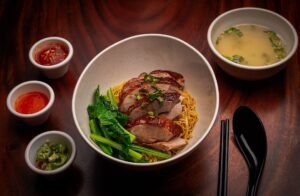You need to be familiar with a few terms when renting a home in China to streamline the process and prevent any miscommunications. You can better negotiate China’s renting procedure and locate a cozy and suitable place to call home if you use the terminology listed in this guide.
Mandarin Chinese expressions for renting a house
长租 (cháng zū) – Long-term rental
短租 (duǎn zū) – Short-term rental
日租 (rì zū) – Daily rental
周租 (zhōu zū) – Weekly rental
月租 (yuè zū) – Monthly rental
年租 (nián zū) – Yearly rental
整租 (zhěng zū) – Renting the entire apartment/house
合租 (hé zū) – Sharing a rented apartment/house with others
装修 (zhuāng xiū) – Renovation/decoration
家具 (jiā jù) – Furniture
电器 (diàn qì) – Appliances
水电费 (shuǐ diàn fèi) – Water and electricity bills
物业费 (wù yè fèi) – Property management fees
维修 (wéi xiū) – Maintenance/repair.
平方米(píngfangmi) – Square meter

All kinds rooms in Mandarin Chinese
客厅 (kè tīng) – Living room
卧室 (wò shì) – Bedroom
书房 (shū fáng) – Study room
厨房 (chú fáng) – Kitchen
餐厅 (cān tīng) – Dining room
洗手间 (xǐ shǒu jiān) – Bathroom
卫生间 (wèi shēng jiān) – Restroom
浴室 (yù shì) – Shower room
储藏室 (chǔ cáng shì) – Storage room
衣帽间 (yī mào jiān) – Closet
阳台 (yáng tái) – Balcony
走廊 (zǒu láng) – Corridor
地下室 (dì xià shì) – Basement
阁楼 (gé lóu) – Attic
车库 (chē kù) – Garage
花园 (huā yuán) – Garden
露台 (lù tái) – Terrace
游戏室 (yóu xì shì) – Game room
影音室 (yǐng yīn shì) – Home theater room
健身房 (jiàn shēn fáng) – Gym room
按摩房 (àn mó fáng) – Massage room
泳池 (yǒng chí) – Swimming pool
桑拿房 (sāng ná fáng) – Sauna room
酒窖 (jiǔ jiào) – Wine cellar
茶室 (chá shì) – Tea room
厕所 (cè suǒ) – Toilet/Restroom (less formal)
Most important expressions
你好,我想租一间两室一厅的公寓,你们有吗?(Nǐ hǎo, wǒ xiǎng zū yī jiàn liǎng shì yī tīng de gōngyù, nǐmen yǒu ma?) – Hello, I would like to rent a two-bedroom apartment. Do you have any available?
我们需要交押金吗?(Wǒmen xūyào jiāo yājīn ma?) – Do we need to pay a deposit?
这套公寓的月租是多少?(Zhè tào gōngyù de yuèzū shì duōshǎo?) – What is the monthly rent for this apartment?
我想签一个一年的租约。(Wǒ xiǎng qiān yī gè yī nián de zūyuē.) – I would like to sign a one-year lease.
我们可以装修吗?(Wǒmen kěyǐ zhuāngxiū ma?) – Can we do some renovation?
水电费和物业费包括在房租里吗?(Shuǐdiàn fèi hé wùyè fèi bāokuò zài fángzū lǐ ma?) – Are the water and electricity bills and property management fees included in the rent?
我需要一个停车位。(Wǒ xūyào yī gè tíngchē wèi.) – I need a parking space.
我们可以看看房子吗?(Wǒmen kěyǐ kàn kàn fángzi ma?) – Can we have a look at the house?
需要中介费吗? (Xūyào zhōngjiè fèi ma?) – Do we need to pay any agency fees?
Learn more about our Internship Program in China!
Get to know holidays in China in 2023.
Get free Chinese learning resources.
Read about the Spring Festival Celebration on NRK’s website: https://www.nrk.no/norge/harens-ar-1.16270652#top.










